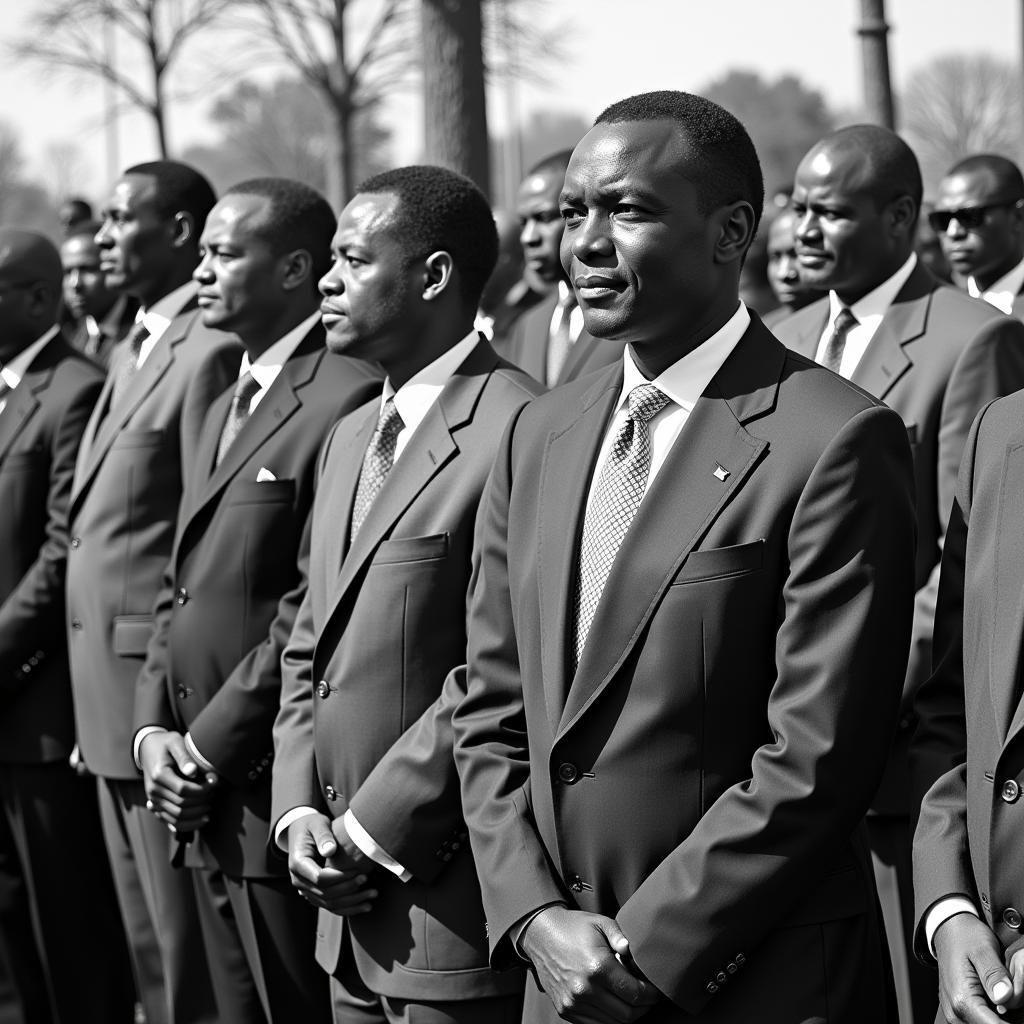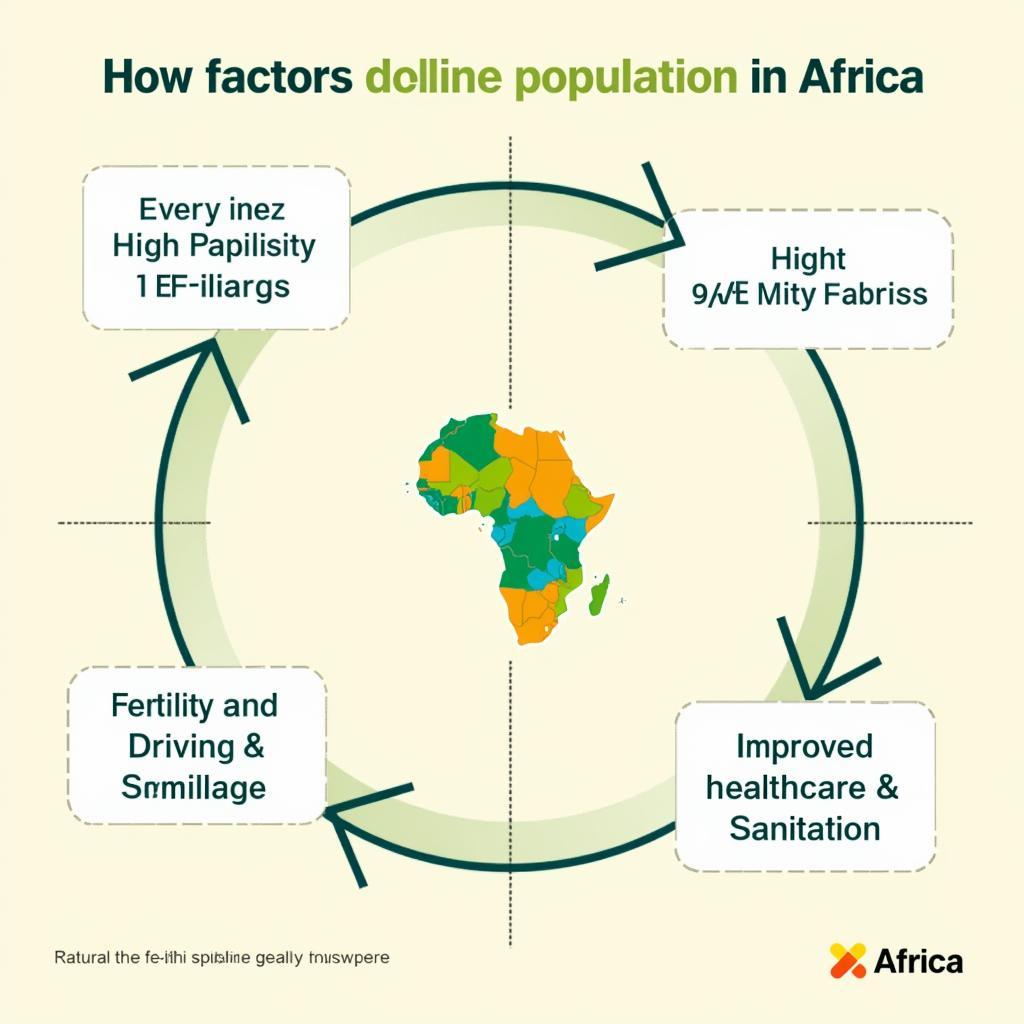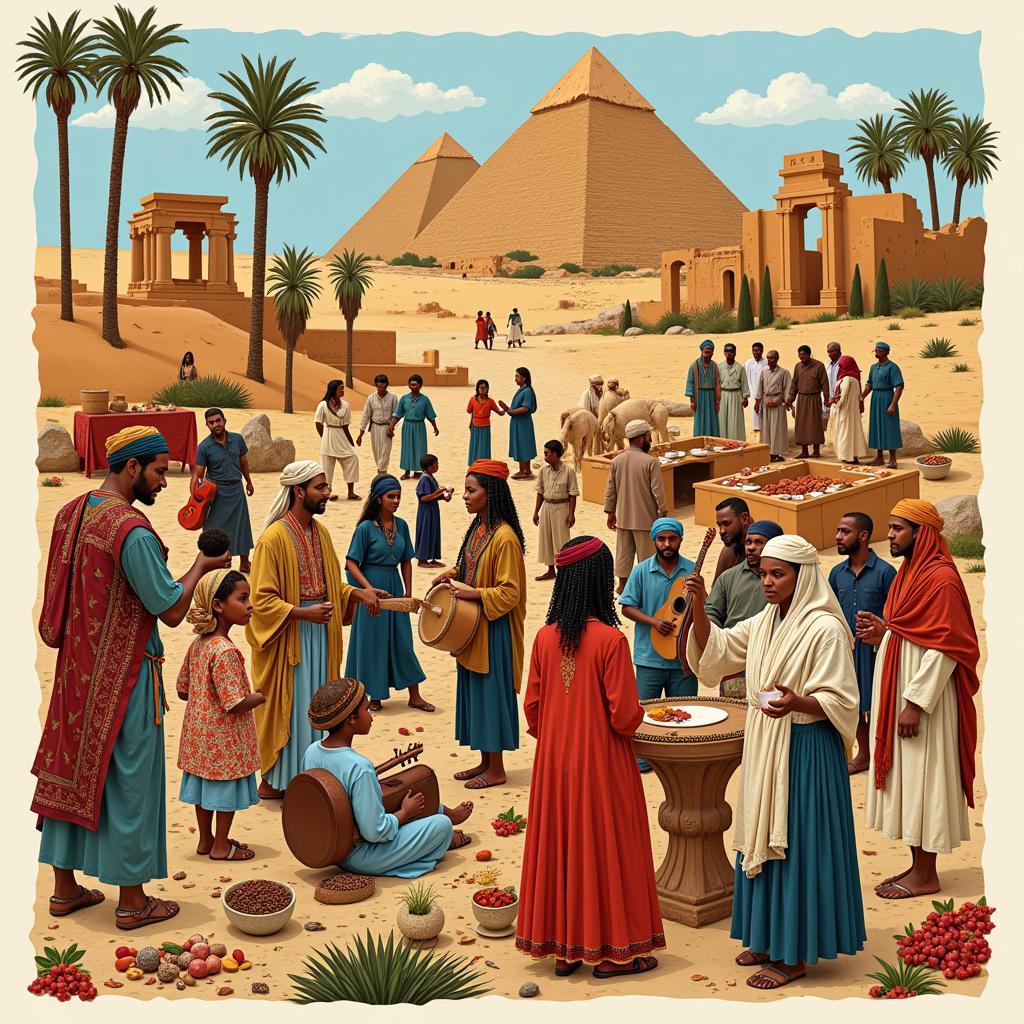African Countries Gained Independence: A Journey to Freedom
The wave of African Countries Gained Independence swept across the continent in the mid-20th century, dramatically reshaping the political landscape and marking a pivotal moment in global history. This period of transformation, fueled by the struggle against colonialism, saw nations rise from the ashes of oppression and forge their own destinies.
The majority of African nations achieved independence between the 1950s and the 1970s, following decades, and in some cases centuries, of European rule. This wasn’t a uniform process; each country’s path to freedom was unique, shaped by its specific colonial history, social structures, and the determination of its people.
The Winds of Change: Factors Driving Independence
Several factors contributed to the wave of independence. The weakening of European powers after World War II played a significant role. The rise of nationalist movements within African countries, demanding self-determination and an end to colonial exploitation, was a crucial catalyst. International pressure, including the growing support for decolonization within the United Nations, further weakened the colonial grip.
- Weakened European powers post-WWII
- Rise of African nationalist movements
- International pressure and UN support
The First Steps to Freedom: Early Independence Movements
Ghana, formerly the Gold Coast, led the way, becoming the first sub-Saharan African nation to gain independence in 1957 under the leadership of Kwame Nkrumah. This momentous occasion ignited a spark of hope across the continent, inspiring other nations to intensify their struggles for liberation. Guinea followed suit in 1958, choosing complete independence from France, setting a precedent for other French colonies.
When did most African countries gain their independence? The majority gained independence in the 1960s. This decade, often referred to as the “Decade of Africa,” saw a flurry of independence declarations.
Challenges and Triumphs: The Path to Self-Governance
The transition to independence was rarely smooth. Many newly independent nations faced numerous challenges, including political instability, economic dependence on former colonial powers, and ethnic tensions. Despite these hurdles, many African nations demonstrated remarkable resilience, building new institutions, developing their economies, and forging their own identities on the world stage.
 African Leaders at Independence Ceremony
African Leaders at Independence Ceremony
Legacy of Colonialism: Lasting Impacts
The legacy of colonialism continues to shape African countries today. The arbitrary borders drawn by colonial powers, often disregarding existing ethnic and cultural boundaries, have contributed to ongoing conflicts in some regions. Economic disparities and neocolonial influences remain significant challenges.
What were some of the long-term effects of gaining independence? The long-term effects included the establishment of sovereign states, the development of national identities, and the ongoing struggle for economic and social justice.
Celebrating African Independence: A Continent Transformed
The journey to independence was a testament to the courage, resilience, and determination of the African people. It marked a turning point in history, paving the way for a new era of self-determination and nation-building. While challenges remain, the spirit of independence continues to inspire hope and progress across the African continent. You can explore further details on African countries and their date of independence.
 Modern African Cityscape
Modern African Cityscape
Dr. Abimbola Adebayo, a renowned historian specializing in African decolonization, notes, “The independence movements were not merely political events; they were profound social and cultural transformations that reshaped the identity of the continent.”
Professor Chike Obi, an expert in post-colonial African studies, adds, “The struggle for independence continues in the fight for economic emancipation and social justice.”
The fight for independence sparked a wave of cultural revival, reflected in the arts, music, and literature of the era. For a deeper understanding of cultural symbols, explore African country mala. Understanding the economic landscape is crucial, and you can find information about African currency symbol.
Conclusion
The era of African countries gained independence marked a pivotal moment in global history. While the journey has been fraught with challenges, the spirit of independence continues to drive the continent forward. Understanding this period is essential to appreciating the complex tapestry of modern Africa. Learn more about the overall independence movement at African iindependence. To delve into the symbolism of national identity, explore resources on African continent country flags.
FAQ
- When did the majority of African countries gain independence? The 1960s.
- What were some of the challenges faced by newly independent nations? Political instability, economic dependence, and ethnic tensions.
- What role did Kwame Nkrumah play in the independence movement? He led Ghana to independence, inspiring other nations.
- What is the lasting impact of colonialism on Africa? Arbitrary borders, economic disparities, and neocolonial influences.
- How did independence impact African culture? It led to a cultural revival expressed through art, music, and literature.
- What were the key factors driving the independence movements? Weakened European powers, rise of nationalism, and international pressure.
- What is the significance of the “Decade of Africa”? It refers to the 1960s when many African nations gained independence.
Common Scenarios and Questions
- How did independence impact specific regions of Africa differently?
- What are some lesser-known stories of the independence struggles?
- How do the effects of colonialism continue to manifest today?
Further Exploration
- Explore the individual histories of specific African nations and their paths to independence.
- Research the role of women in the independence movements.
- Investigate the economic and social challenges facing post-colonial Africa.
Contact Us
For any assistance or further inquiries, please contact us:
Phone: +255768904061
Email: kaka.mag@gmail.com
Address: Mbarali DC Mawindi, Kangaga, Tanzania.
Our customer service team is available 24/7.



